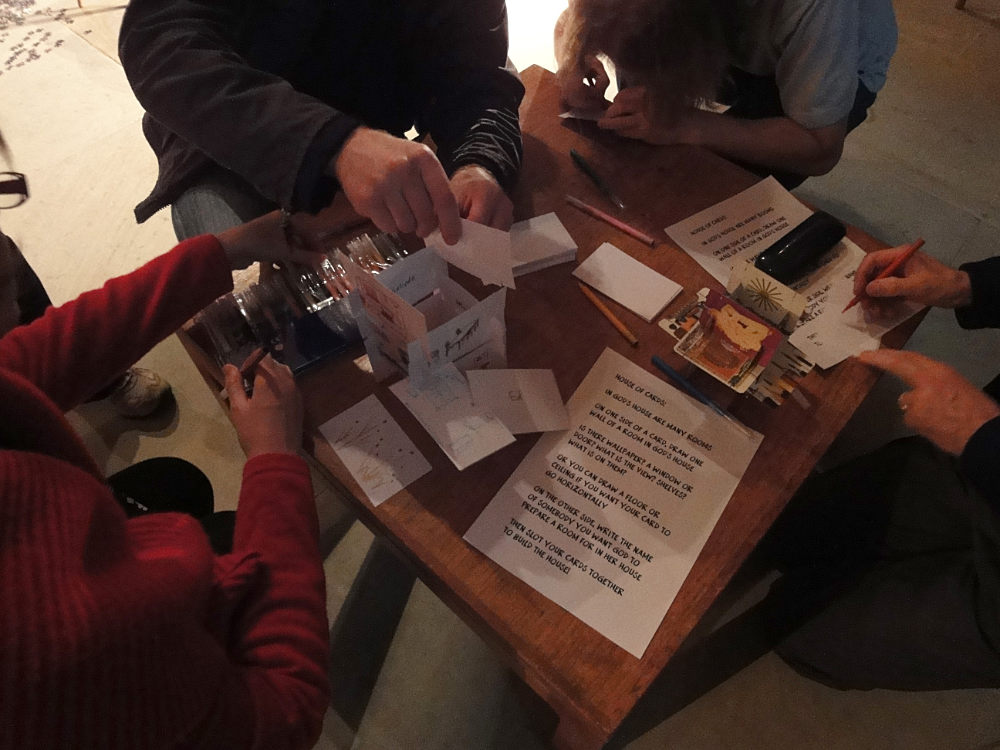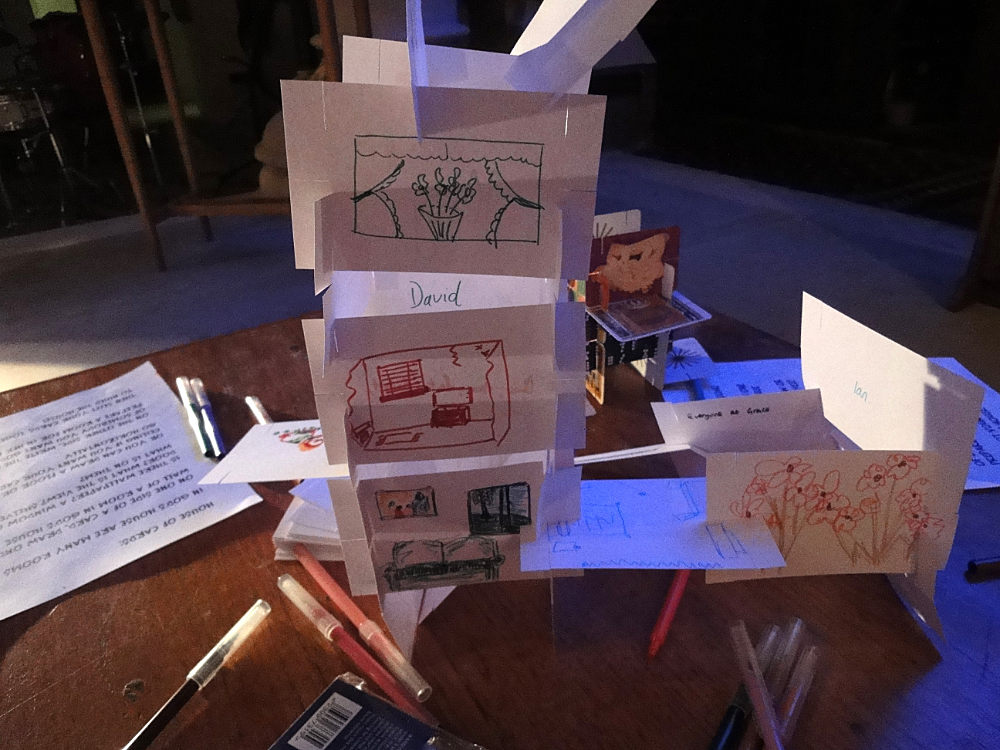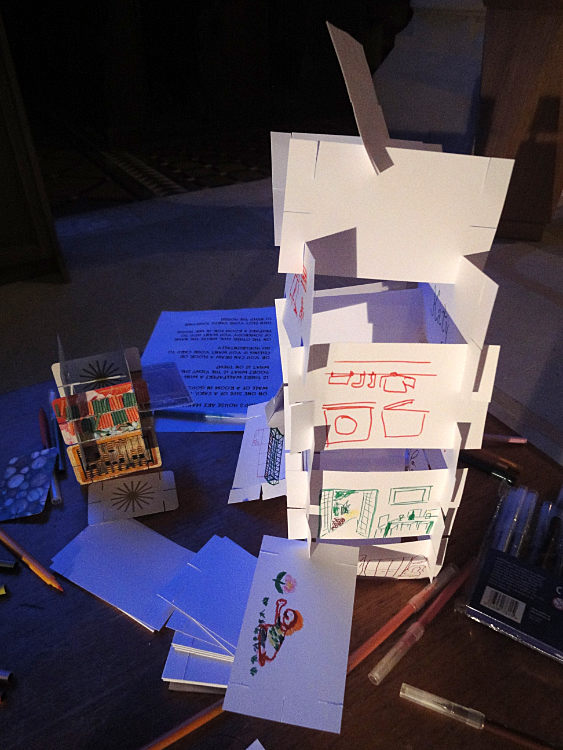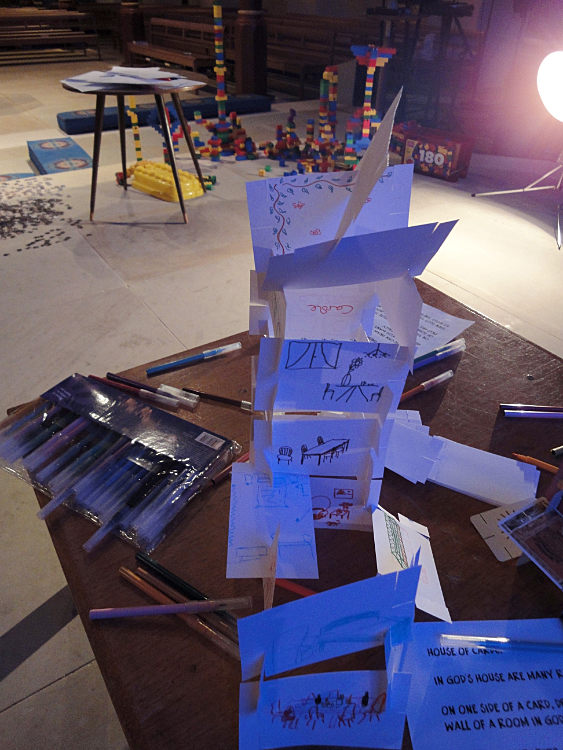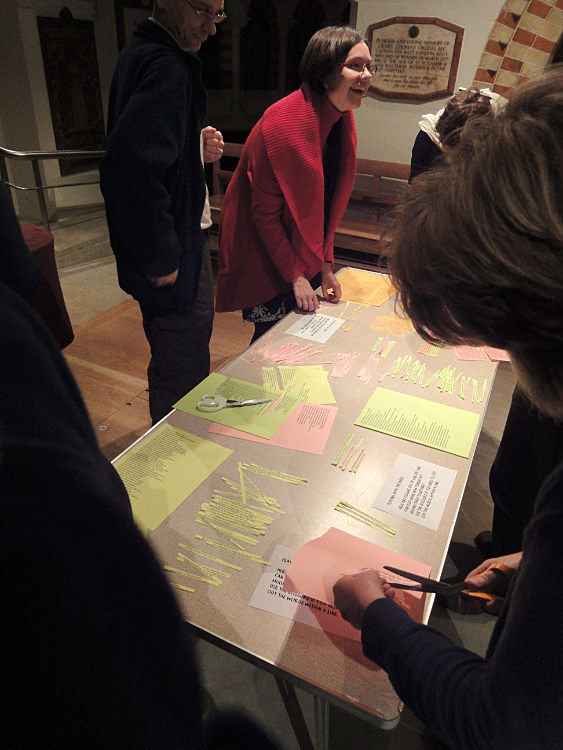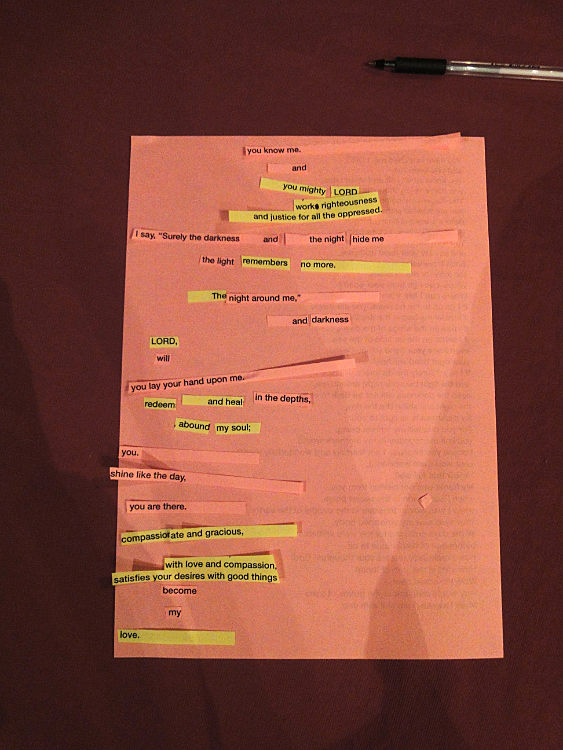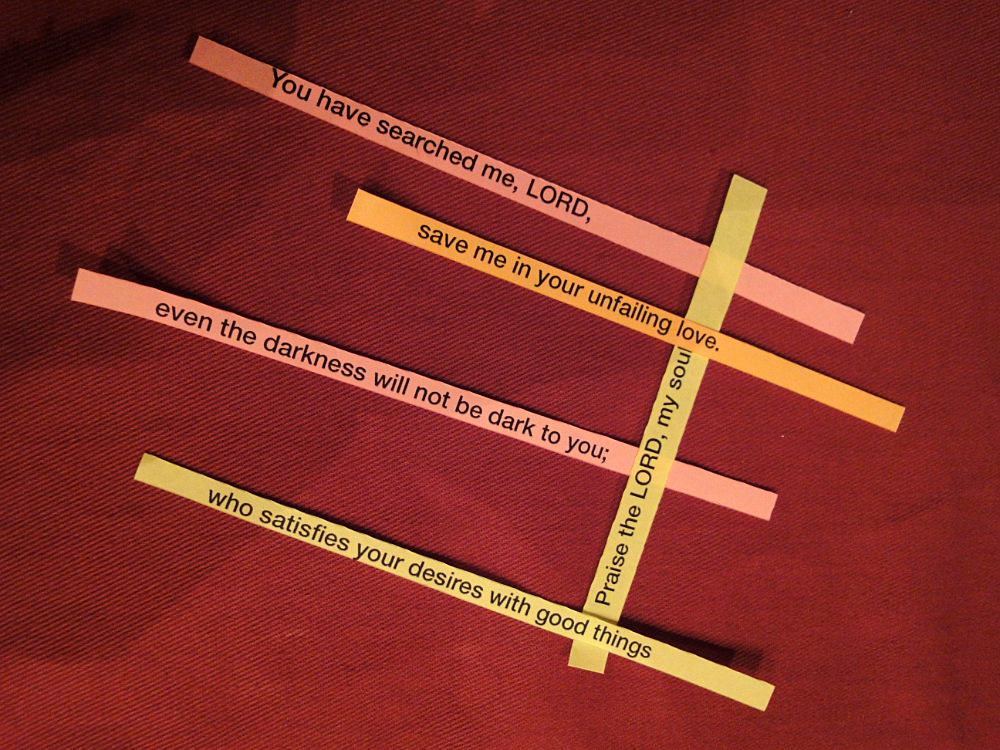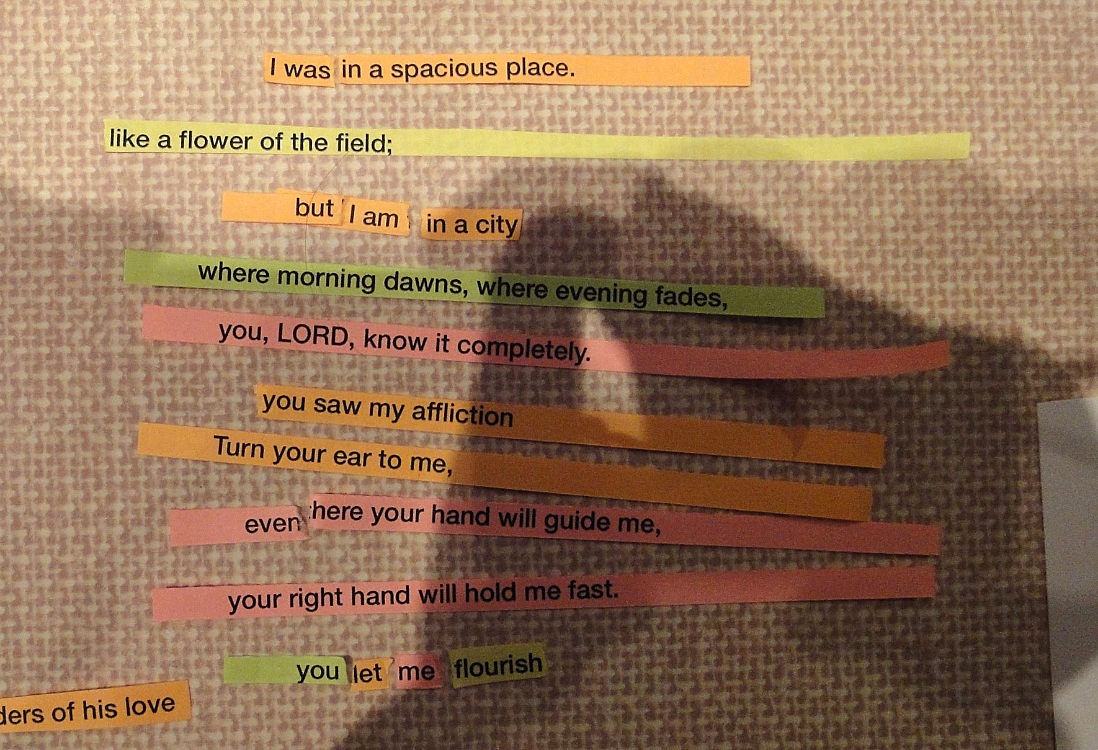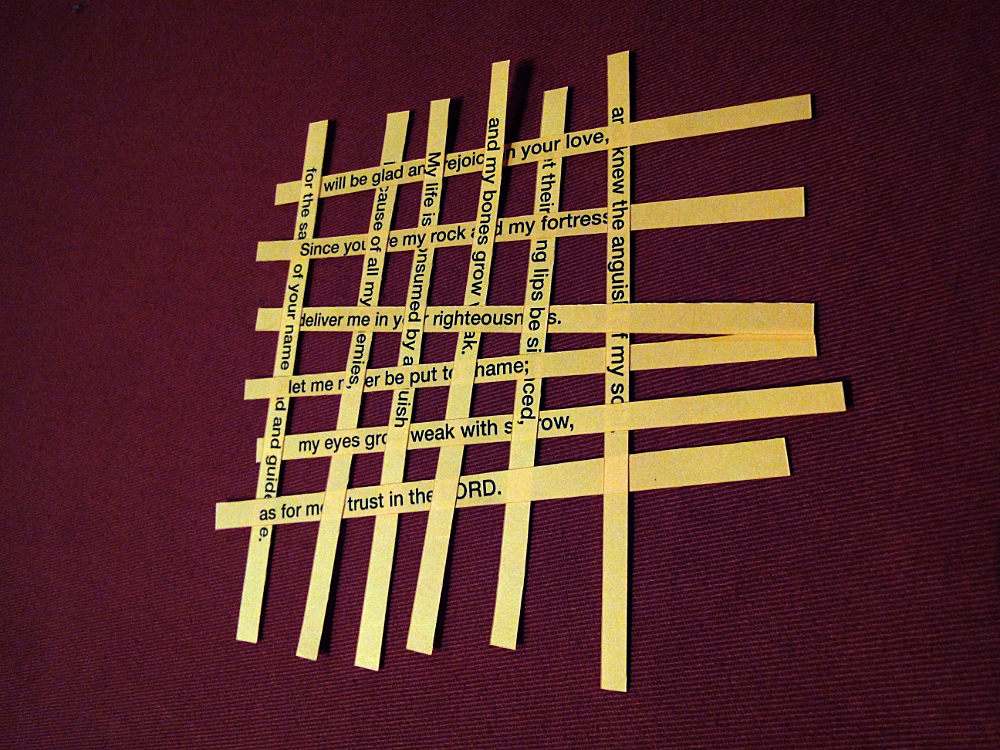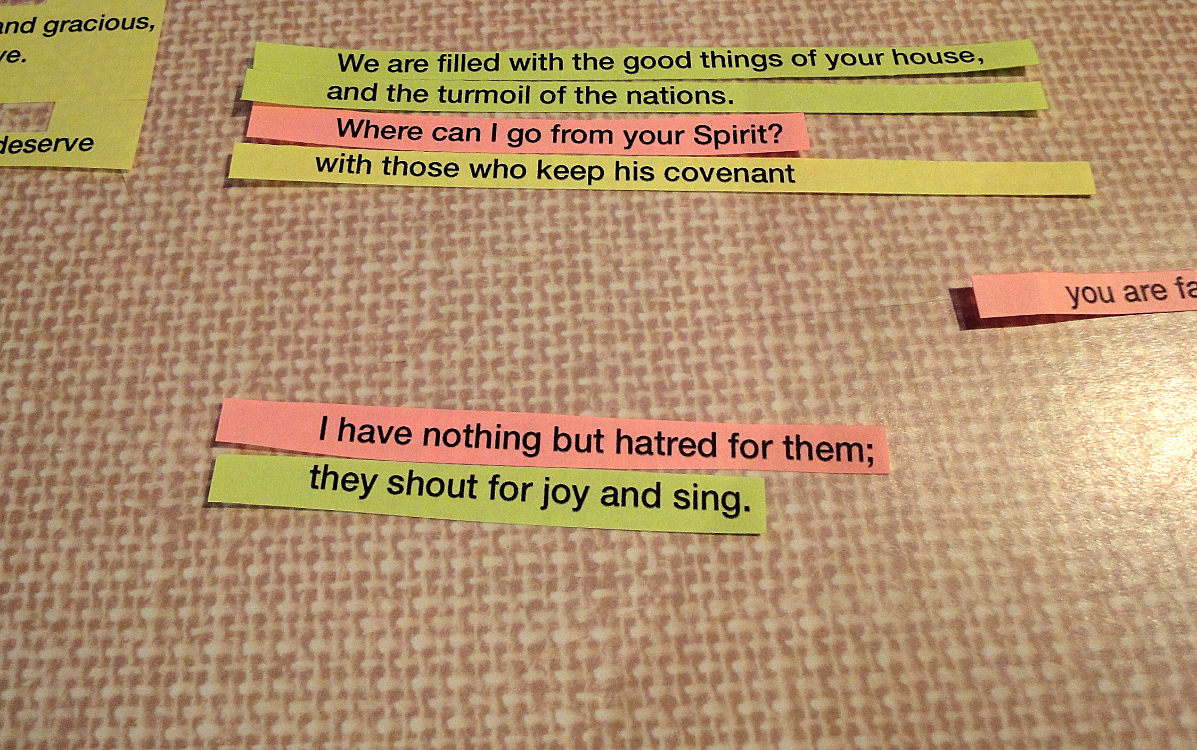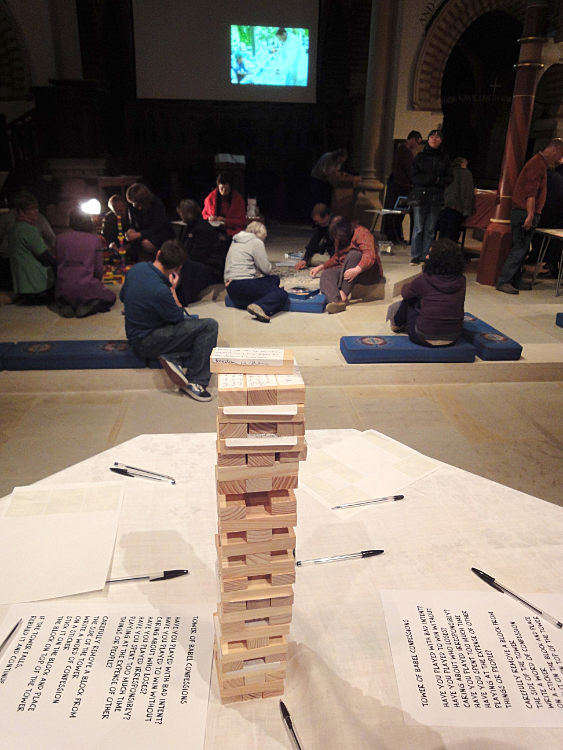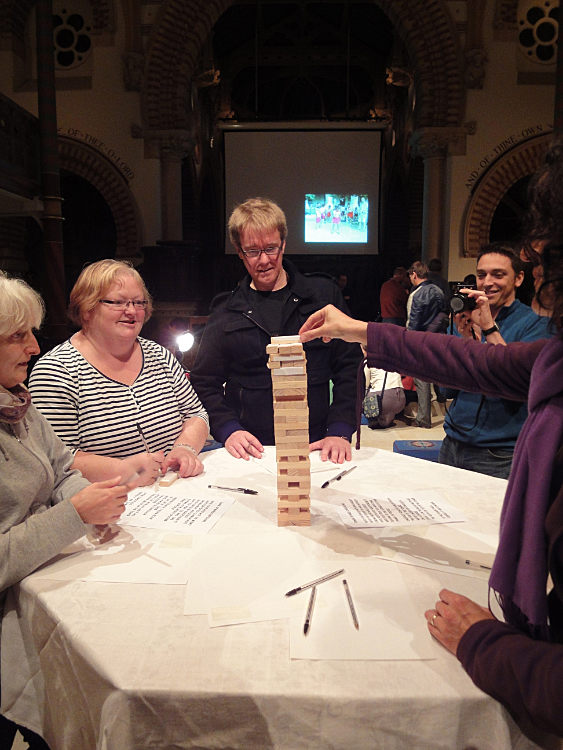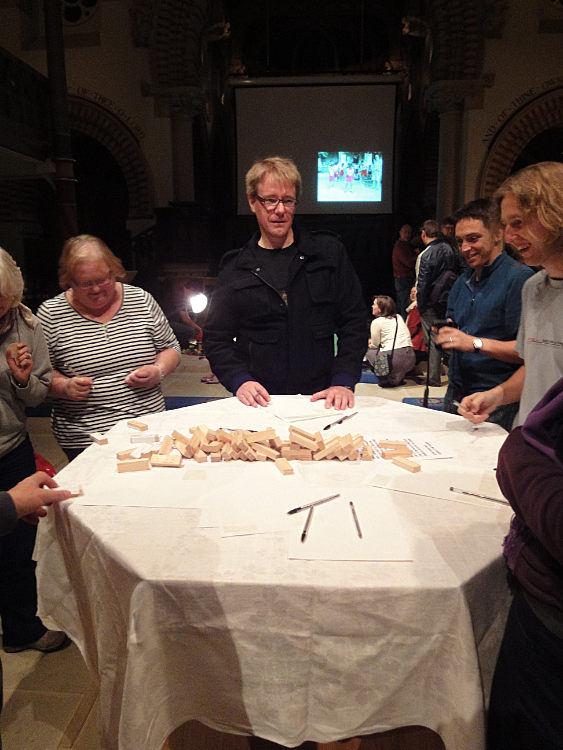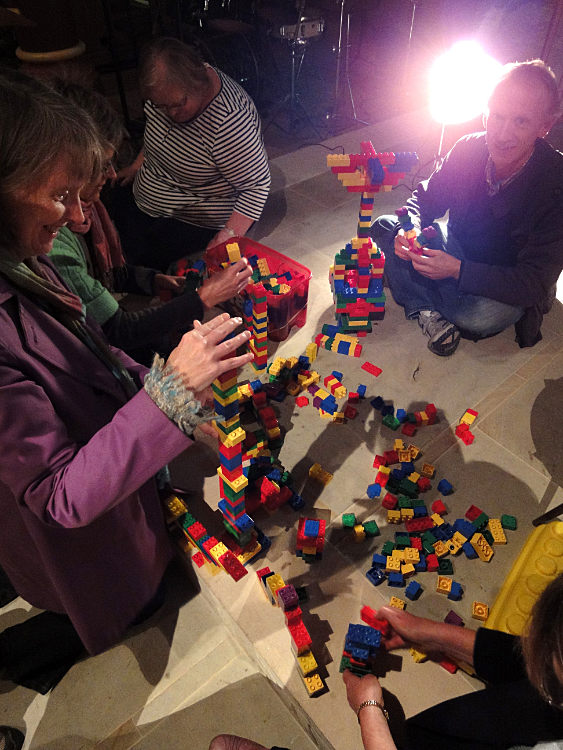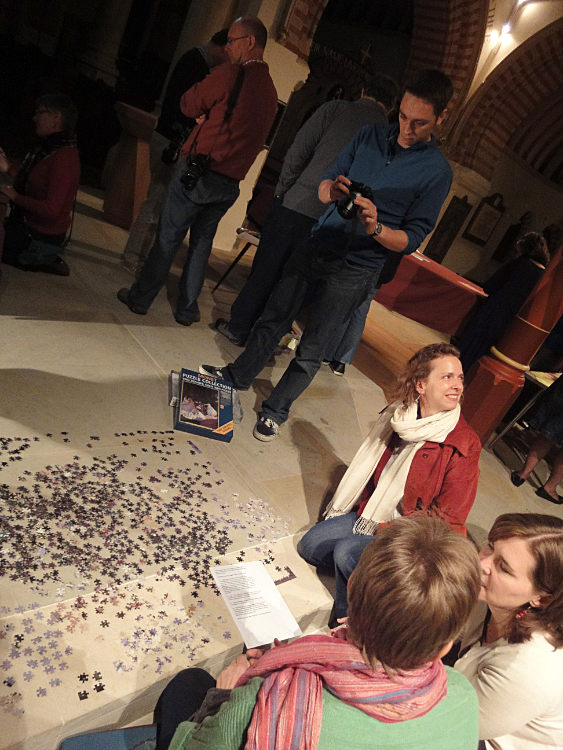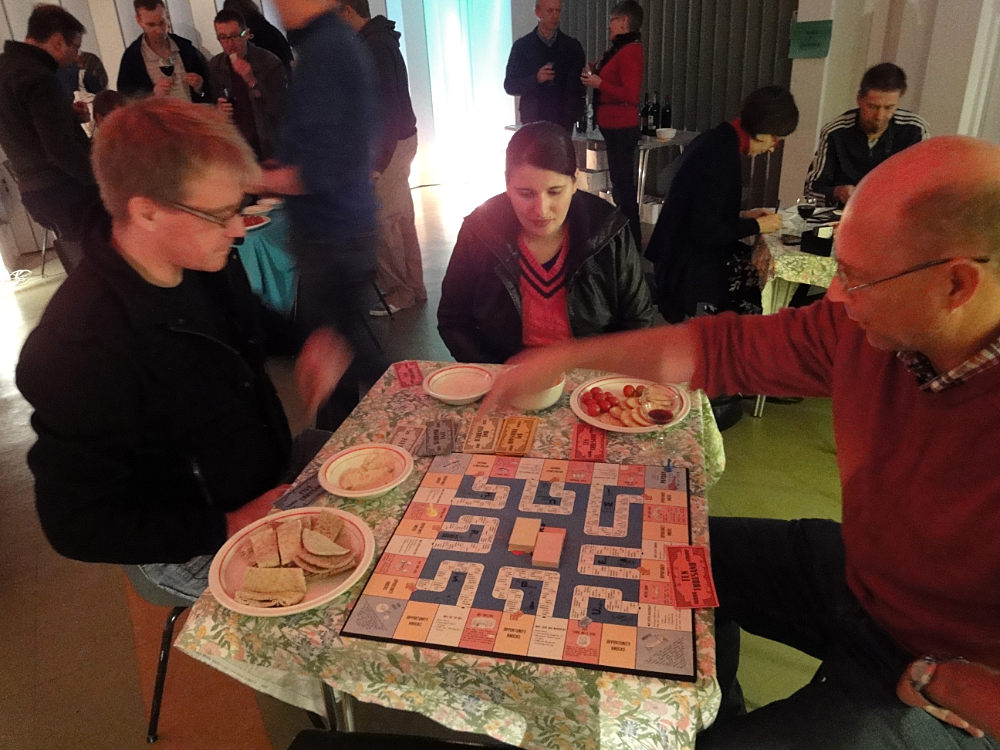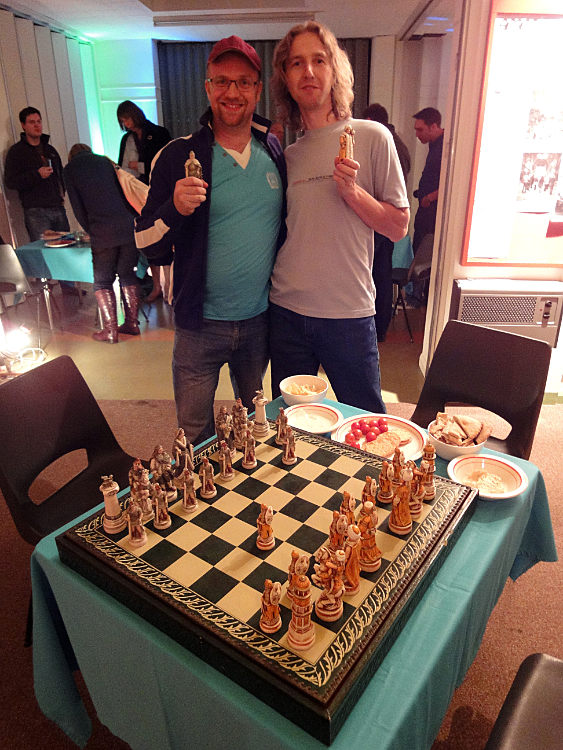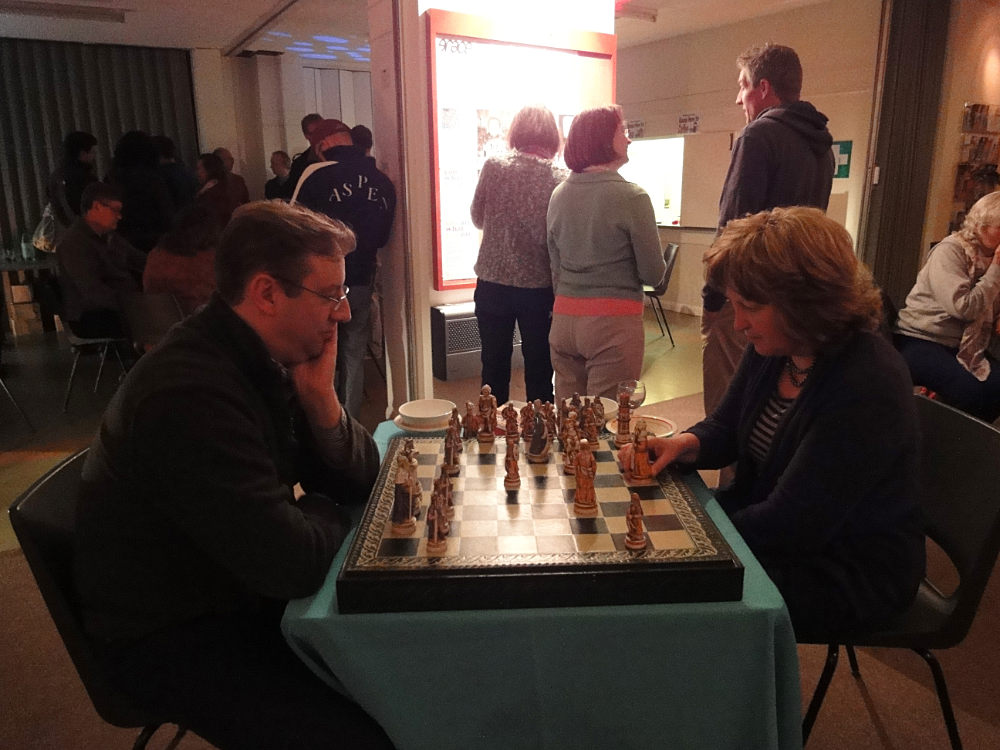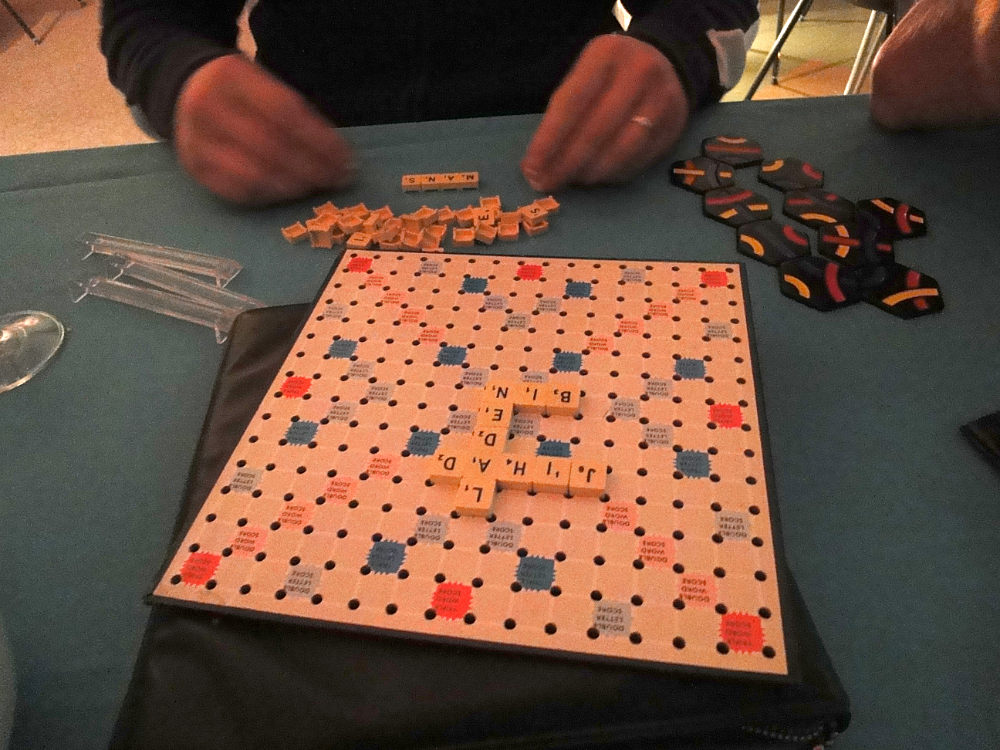October 2011: Play
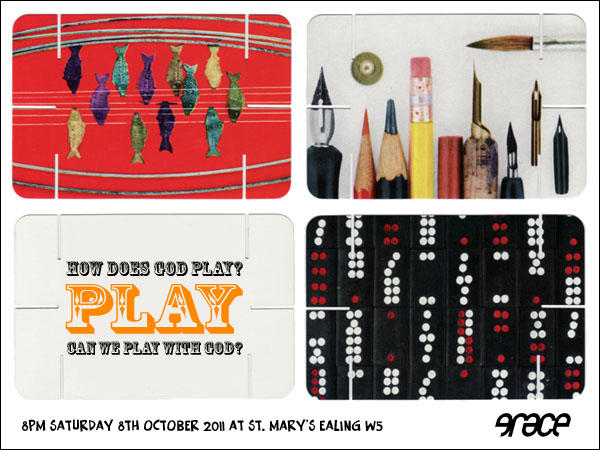
order of service:
1. welcome and intro - concepts
some definitions of play:
doing stuff to see what happens without forcing preconceived outcomes
rehearsal without consequences
freedom to create/act
exploration of what-ifs - make-believe
in the early days of Grace - people said it's just play [not proper church]
play seen as trivial, not taken seriously as a method of growth and exploration
has there been more trouble in the church from people being too serious than too playful?
constructing theology as we play
what is the theology of play? is there any?
the cosmos as god's play
evolution - did god set it up just to see what happens?
einstein said that god does not play dice with the cosmos
why was he uncomfortable with the idea?
the bad side of play:
acting out destructive or selfish wishes, no regard for consequences
the riots - in some senses, destructive play
addictive
vicarious
wasting time
pleasure without morality
2. group discussion:
how much time do you spend playing?
what do you do when you play?
how does god play?
can we play with god?
[these questions on screen]
[music: the 'clock music' from 'play school' was used to warn of the end of this period]
ask for feedback
3. play stations:
A. house of cards:
stack of blank cards with six slots as eames 'house of cards'. pens.
words on paper:
in god's house are many rooms
on one side of a card, draw one wall of a room in god's house
is there wallpaper?
a window or door?
what is the view?
shelves? what is on them?
or you can draw a floor or ceiling if you want your card to go horizontally
on the other side, write the name of somebody you want god to prepare a room for in her house
then slot your cards together to build the house!
B. play with bible:
four psalms printed out, numerous copies. some cut up line by line to demonstrate intention and get people started. different colours of paper for each psalm so can see which pieces of composite have come from where.
words on paper:
here are psalms cut up line by line.
can you make new psalms by mixing them together?
use the scissors if you need to cut out the words within a line.
C. tower of babel confessions:
tower of jenga blocks constructed on altar. sticky labels and pens around.
words on paper:
have you played with bad intent?
have you played to win without caring about who loses?
have you played irresponsibly?
have you spent too much time playing at the expense of other things or people?
carefully remove a block from the side of the tower
write a word of confession on a sticker
stick it on the block and place the block on top of the tower
if the tower falls, rebuild it and continue
D. jigsaw puzzle and duplo lego station
a jigsaw puzzle - can only be assembled one way
lego - can be assembled in many ways
words on paper:
I once heard a talk by Tom Butler describing different approaches to faith on the basis of what type of games we like to play.
He asked, is yours a Jigsaw faith or a Domino faith?
1) Jigsaw approach is to build a picture where everything fits – there is one correct answer, the pieces must fit into their pre destined place – if they don’t fit, it isn’t right. The end result will be complete, with no loose ends and as somebody else has designed it. It must be the right solution – there is no room for error. A perfect picture. A race to get to the complete prize. But does that faith give you room to breathe, to question, to develop?
2) Lego - That approach is different. Every time you put a piece down, it leads to a new place – and a different answer. Sometimes it doesn’t end.
3) Scrabble likewise – leads us to new solutions but can meander into all directions.
4) Computer Games – always going to the next level. Once we reach the next level – we find it is only the entrance to the next one and then the next one. Will we ever find the end? The truth, the big picture, or are we destined to keep slugging away?
What is your faith like? Write down your thoughts below:
E. the christian tradition against play
images of games on laptop, looping slideshow
words on paper:
Why do you think Christian Churches and other world religions have become so concerned about and in some cases have condemned pastimes like:
kite-flying
football
golf
mah jeong
card playing
pop music?
Do you ever think they have a point or are they just being closed-minded, controlling and dictatorial? Are they trying to protect people and if so, what from?
Are there games, pastimes that you do that you feel draw you away and divert you from spending time with and being guided by God?
Are there any pastimes that make you feel closer to God?
Write down which ones:
[music: the 'clock music' from 'play school' was used to warn of the end of this period]
4. communal end prayer/blessing on screen:
Thank you God for creating the world we live,
breathe and learn to express ourselves in.
Thank you for our lives, our friends and relationships,
for work if we have it.
Thank you that there is also a time to play,
to relax and to enjoy.
Help us to be able to play
without wasting our time and our gifts,
our resources and those of others.
Help us to play without being too withdrawn,
obsessed or competitive,
and taking us away from you and those who need us.
Help us to use our play
to shape our minds, bodies and spirits,
to overcome challenges,
learn new truths and understanding,
heighten our senses, see things in a new light,
change the routines that can be numbing.
Help us to play in a way that opens us to each other,
the world around us,
and the mysteries and possibilities of your Universe
Now send us out in the power of your Holy Spirit
to live, work and play for your praise and glory.
Amen.
5. closing sequence: serious business
words by cs lewis, on images of snowboarding:
While we are in this 'valley of tears', cursed with labour, hemmed round with necessities, tripped up with frustrations, doomed to perpetual plannings, puzzlings and anxieties, certain qualities that must belong to the celestial condition have no chance to get through, can project no image of themselves, except in activities which, for us here and now, are frivolous.
For surely we must suppose the life of the blessed to be an end in itself, indeed the end; to be utterly spontaneous; to be the complete reconciliation of boundless freedom with order - with the most delicately adjusted, supple, intricate and beautiful order?
How can you find any image of this in the 'serious' activities either of our natural or of our [present] spiritual life? - either in our precarious and heartbroken affections or in the way which is always, in some degree, a way of the cross; no. It is only in our 'hours off', only in our moments of permitted festivity, that we find an analogy.
Dance and game *are* frivolous, unimportant down here; for 'down here' is not their natural place. Here they are a moment's rest from the life we were placed here to live. But in this world everything is upside down. That which, if it could be prolonged here, would be a truancy, is closest to that which in a better country is the end of ends. Joy is the serious business of heaven.
6. cafe:
a variety of board games on tables
Photos
<< swipe left

